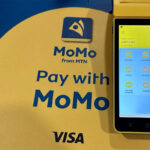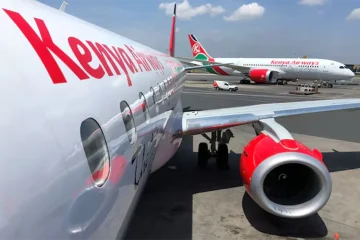AFRICA’s telcos have begun an aggressive push to replace traditional plastic Subscriber Identity Module (SIM) cards with virtual alternatives to tap into the fast-growing Internet of Things (IoT) market.
MTN and Airtel are the latest to expand this offering to their subscribers in South Africa, Nigeria and Kenya.
In the past month, MTN South Africa has expanded access to eSIMs to all its subscribers and signed a long-term contract with global IoT connectivity solutions provider, Eseye, to help the telco standardise a global eSIM and IoT platform offering.
“Our strategic partnership with Eseye will enable us to sell diverse IoT services such as connectivity, IoT bundles, and value-added services to help our customers meet their IoT global needs,” said MTN Business Head of IoT Solutions, Lawrence Juku in a joint statement.
The multi-year agreement with Eseye covers South Africa and 18 African countries including Nigeria, Rwanda, Uganda, Sudan, Botswana and Zambia where MTN operates – an indication of a pan-African IoT deployment in the offing.
After enhancement of its existing IoT SIM management capabilities with additional layers to power Global SIMs and manage multi-IMIS, the operator with a customer base of 36.5 million said it is eyeing millions of IoT devices.
MTN introduced eSIM to its subscribers in 2019, but exclusively for post-paid customers. It is now available to prepaid customers, too. The same year, Kenya’s Safaricom also introduced its pre-paid customers to an “embedded SIM” but has since suffered low uptake. Safaricom’s parent company, Vodacom also opened eSIM support for its South African subscribers.
In early February, Airtel, with a presence in 14 African countries, also launched an eSIM in the market.
Handset makers like Apple and Huawei spin-off, Honor, have announced intentions to launch into Africa high-end mobile phones and devices that come with embedded SIMs – their first market on the continent being South Africa.
While Apple launched the iPhone 15 – which can support up to eight eSIMs at once – earlier in September, Honor is also eyeing the market with a portfolio of IoT devices including headsets, smart screens, tablets and laptops.
UK-headquartered research firm, Juniper has reported that the global eSIM market will increase from US$4.7 billion in 2023 to US$16.3 billion by 2027, driven by the adoption of eSIM-enabled consumer devices. The research singled out Apple’s recent release of an eSIM-only iPhone 14 as the kind of hardware-driven “push” factor that will trigger accelerated adoption.
“Total number of smartphones leveraging eSIM connectivity will increase from 986 million in 2023 to 3.5 billion by 2027 (globally) with manufacturers such as Google and Samsung developing an equivalent eSIM-only Android device to compete with Apple and maintain their global market positioning,” according to the report.
Another report, the IDC Worldwide Semi-annual IoT Spending Guide, shows worldwide spending on IoT could pass US$1 trillion by 2024, listing South Africa among the fastest-growing IoT markets in the Middle East and Africa.













